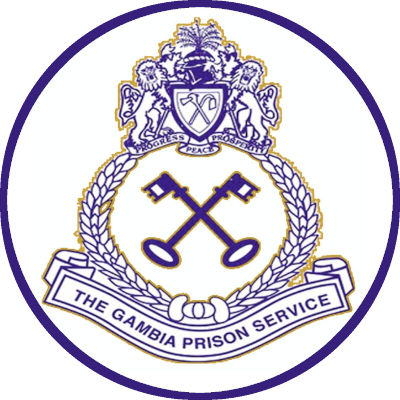History
The Gambia Prisons Service was established as far back as the Colonial days of lord Bathurst. The first Prison complex was built at Bedford place, the present education Department. This was when civilization was not entrenched in The Gambia Society and those days Gambians were a little bit unaware of the western custodial procedures. The Prisons or detention Centers were created to adhere to colonial rules performed through their Attendants. In those days Bedford building was purposely build to house a capacity of 50 Prisoners.
As Prisoners and detainees increased there was the need to relocate Bedford place to a new site. This site was identified at campama the then psychiatric center. As societies grew larger, crime rates also accelerated. The then colonial Governor decided to construct another prisons center. This Center was identified and constructed as the present mile II prisons with a large capacity to keep more prisoners in lawful custody in a better and safe environment in conformity with the international standard. It was at this period that a white officer-Superintendent Peter was appointed as the head of the prisons department. At the same time an abandoned slave collection Center in Kerewan in the North Bank was also transformed into a prison center. This Center was later transferred to Georgetown’s new established prisons presently Janjanbureh prisons.
Immediately after World War 2 in 1945, another prison center was open at Old Jeshwang settlement. This is the present Jeshwang prison camp.
When civilization started coming in place, and criminal rate was on the increase, then the department was relocated and transferred to Campama in the north of the capital and finally to Mile II prison with a large capacity to keep more prisoners in lawful custody in a better and safe environment in conformity with the international standard.
Prison reform can be a daunting task. In fact it usually is, and attempts at reform tend to fail at least as often as they succeed. This is not an excuse for giving up, but a good reason for approaching the task cautiously and recognizing the difficult and complex role that prison leaders play in bringing about effective and sustainable reforms within the system in which they work. Prisons are harsh and difficult environments, particularly when they operate without the necessary human, physical and financial resources.
The job of a prison leader is inevitably a very challenging one. It clearly requires the full commitment of a strong, dedicated, creative and persevering individual.
“The purpose and justification of a sentence of imprisonment or a similar measuredeprivative of liberty is ultimately to protect society against crime. This end can only be achieved if the period of imprisonment is used to ensure, so far as possible, that upon his or her return to society, the offender is not only willing but able to lead a law abiding and self-supporting life.” Standard Minimum Rules for the Treatment of Prisoners, Standard 58.
Prisons play an essential role in society. They are crucial to human and public security. Yet, the task of building and managing fair, humane, and effective prisons is rarely given a high priority. Governments understandably have other funding priorities such as housing, transportation, infrastructure, education, health, defense, etc. Moreover public perception of prisoners is generally negative and there is rarely much public support to spend more public funds on prisons. Prison leaders often have to deal with a fairly narrow public view of the goals of imprisonment. Most people would prefer to see prisoners punished rather than rehabilitated.
“All persons deprived of their liberty shall be treated with humanity and with respect for the inherent dignity of the human person.” International Covenant on Civil and Political Rights, Article 10 (1).
The Gambia Prisons was design correctly to serve its purpose with the proper observant of all human rights and all the conventions of that time. It began losing grip of hang on to what is right when it was turn to a political bureau by the Governing body and some influential politicians to a punishment center.
Those in power neglect Prisons and left it to be so degraded that it’s not fit for human dwelling. This is for a purpose of punishment to those taken there and the significant role of rehabilitation, reformation and re-integration was no more of use. It was within this time that cells meant to house five inmates at most were house twenty-five without considerations of ventilation, overcrowding, health and hygiene nutrition. The whole prisons form the administration, the warders, inmates, and the structural infrastructure was neglected. As years go be the conditions deteriorated to an extent that today the Gambia prisons would need a thorough revamp if not a new facility.

